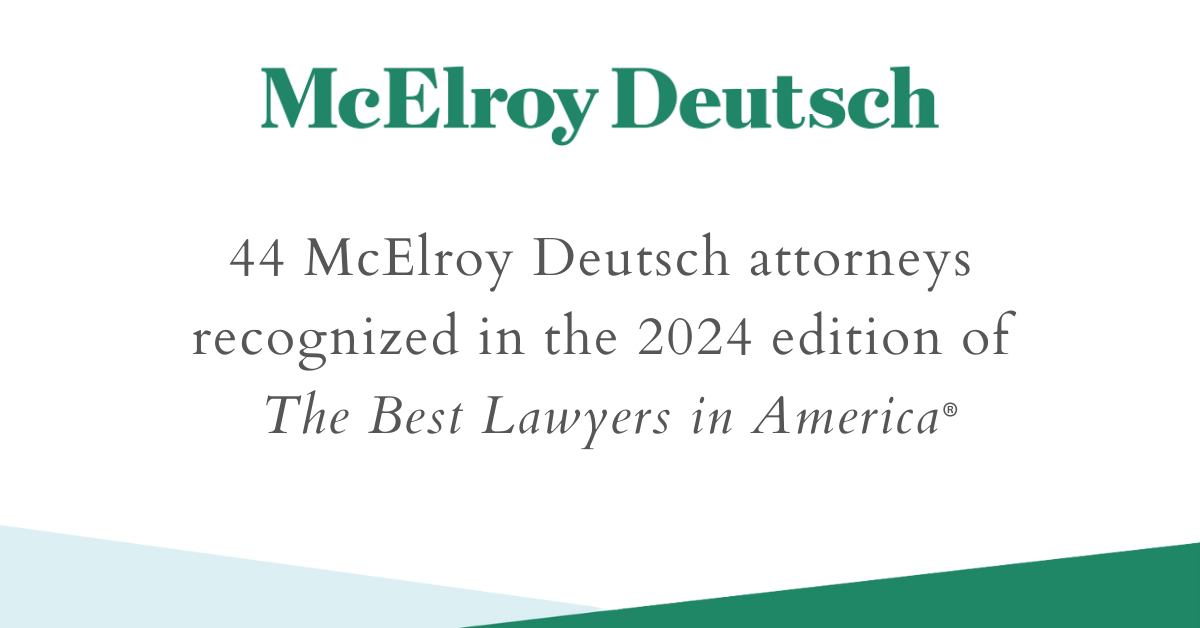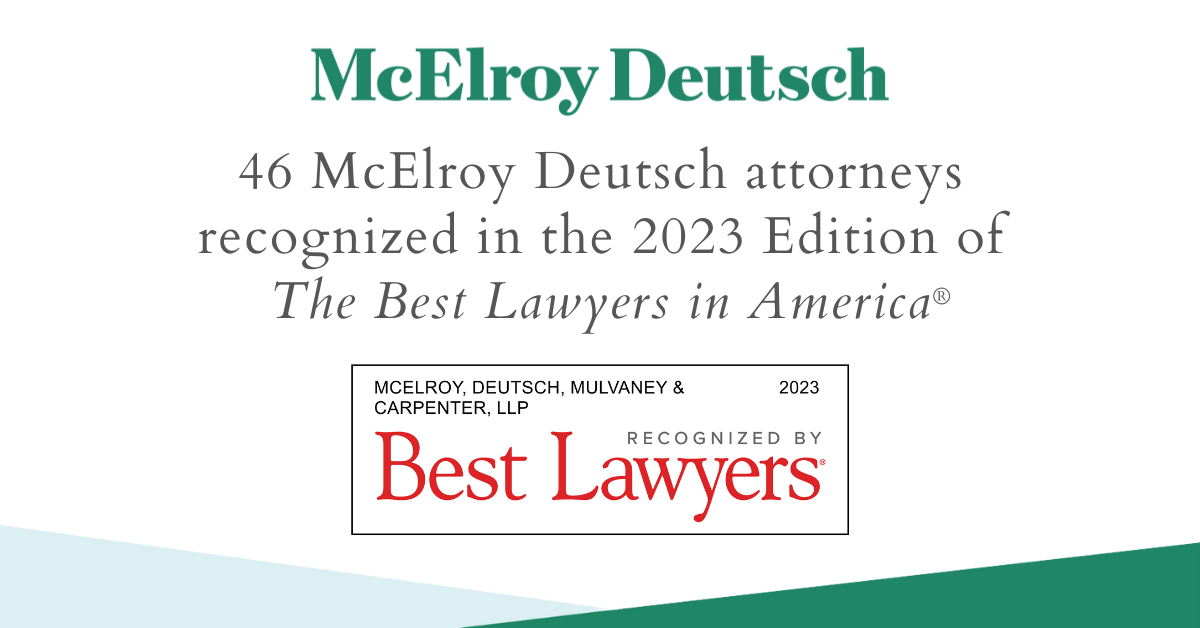Kenneth J. Bartschi

KENNETH J. BARTSCHI is Of Counsel to the Firm, and is a member of the Litigation & Insurance Services Practice Group. Mr. Bartschi's practice includes appellate litigation in civil, family, constitutional, and criminal matters. He has argued numerous cases in the Connecticut Supreme Court and Appellate Court that have had significant impacts on the law.
Attorney Bartschi has served as co-author to Thomson Reuter’s Connecticut Rules of Appellate Procedure (Annotated) since the 2004 edition. He has also served as co-author of Thomson Reuter’s Connecticut Practice Series: Connecticut Superior Court Civil Rules since 2000. The author of numerous articles, he has co-authored the annual Appellate Review for the Connecticut Bar Journal since 2000. He regularly co-presents the Annual Appellate Review at the Connecticut Legal Conference.
In 2013, Attorney Bartschi became a Fellow of the American Academy of Appellate Lawyers, a national, invitation-only organization. He is active in the Connecticut Bar Association, serving on the executive committees of the Appellate and LGBT sections and is a member of the Human Rights & Responsibilities section, having served as its co-chair. He is also a Fellow of the Connecticut Bar Foundation. His activities outside the practice of law include membership in the Vernon Chorale.
Martindale-Hubbell AV Preeminent Rated (2024) - Martindale-Hubbell's highest peer rating standard. This is given to attorneys who are ranked at the highest level of professional excellence for their legal expertise, communication skills, and ethical standards by their peers. A description of the standard or methodology on which the accolade is based can be found HERE (No aspect of the advertisement has been approved by the Supreme Court).
Listed in Best Lawyers® (2013-2025), a Woodward/White, Inc. business and partners with U.S. News & World Report, in the area of Appellate Practice. A description of the standard or methodology on which the accolade is based can be found HERE (No aspect of the advertisement has been approved by the Supreme Court).
Listed in Super Lawyers®, a Thomson Reuters business, in the area of Appellate Practice in Connecticut (2011-2022). He was also recognized as a Top 50 Connecticut Super Lawyer for 2021. A description of the standard or methodology on which the accolade is based can be found HERE (No aspect of the advertisement has been approved by the Supreme Court).
Results may vary depending on your particular facts and legal circumstances.
Attorney Bartschi has argued over 50 appeals in the Connecticut Supreme and Appellate Courts and has been substantially involved in many other appellate matters. Representative cases that he has argued or been substantially involved in are listed below.
Examples of argued appeals:
Civil Matters
- Millbrook Owners Association Inc. v. Hamilton Standard, 257 Conn. 1 (2001) (establishing the analytical structure for appellate courts to review trial court decisions that impose sanctions for violating discovery orders).
- Kerrigan v. Commissioner of Public Health, 279 Conn. 447 (2006) (establishing the standard of review for intervention as of right and affirming the denial of a motion by a would-be intervenor in a case challenging the exclusion of same-sex couples from marriage).
- New Milford Savings Bank v. Jajer, 244 Conn. 251 (1998) (concluding that the trial court had jurisdiction to open a judgment of strict foreclosure after the law days passed to correct a scrivener’s error that omitted a parcel subject to the mortgage).
- Durrant v. Board of Education, 284 Conn. 91 (2007) (holding that a parent who slipped and fell on school property while retrieving a child from an after school program was not a member of an identifiable class of foreseeable victims for the purpose of identifiable person-imminent harm exception to discretionary act immunity).
- Norris v. Trumbull, 187 Conn. App. 201 (2019) (holding that a regional educational service center established pursuant to statute by four municipal boards of education was not entitled to sovereign immunity in an action brought by a special needs child injured on the premises).
- DiPietro v. Farmington Sports Arena, 306 Conn. 107 (2012) (concluding that the defendants lacked actual or constructive notice of dangerous nature of carpet in an indoor sports arena and were not responsible for child’s injuries).
- Broadnax v. New Haven, 294 Conn. 280 (2009) (reversing and directing judgment to grant defendants’ motion to set aside the verdict in a 42 U.S.C. § 1983 action where plaintiffs claimed the practice of underfilling discriminated against Black firefighters).
- Whitney v. J.M. Scott Associates, Inc., 164 Conn. App. 420 (2016) (reversing order to pay prejudgment interest for breach of stock option purchase agreement and breach of arbitration provisions in employment and stock options agreements).
- Schmaling v. Schmaling, 48 Conn. App. 1, cert. denied, 244 Conn. 929 (1998) (reversing trial court that improperly rejected attorney trial referee’s finding of lack of donative intent in dispute between a mother and son over the construction of an addition to the mother’s house).
Family Matters
- Ramin v. Ramin, 281 Conn. 324 (2007) (holding that the trial court has authority to award counsel fees in a dissolution of marriage action incurred by the discovery misconduct of the opposing party notwithstanding the recipient’s ability to pay her attorneys).
- Simms v. Simms, 283 Conn. 494 (2007) (reversing an order modifying alimony downward to $1 per year where trial court refused to consider the defendant’s non-income producing assets).
- Bauer v. Bauer, 308 Conn. 124 (2013) (holding that trial court’s clarification of its own judgment to supply an order to divide retirement assets consistent with its factual findings that the parties agreed to split the same was not an improper modification of a judgment).
- Brody v. Brody, 315 Conn. 300 (2015) (establishing that contempt must be proven by clear and convincing evidence).
- Zhou v. Zhang, 334 Conn. 601 (2020) (affirming trial court’s order holding that the parties’ post-nuptial agreement was enforceable).
- O.A. v. J.A., 342 Conn. 45 (2022) (holding that the trial court was not required to determine the enforceability of a post-nuptial agreement prior to ordering temporary alimony and counsel fees).
- Ludgin v. McGowan, 64 Conn. App. 355 (2001) (ordering a new hearing on financial orders where the trial court erroneously based its orders on gross income rather than net).
- Calo-Turner v. Turner, 83 Conn. App. 53 (2004) (awarding wife a portion of stock shares that vested after the parties’ separation was not an abuse of discretion).
- Von Kohorn v. Von Kohorn, 132 Conn. App. 709 (2011) (reversing trial court where it abused its discretion in modifying alimony orders sua sponte).
Cases in Which Attorney Bartschi Was Substantially Involved
- Kerrigan v. Commissioner of Public Health, 289 Conn. 135 (2008) (served as cooperating counsel on case establishing marriage equality under the Connecticut Constitution).
- Friezo v. Friezo, 281 Conn. 166 (2007) (reversing trial court decision on enforceability of premarital agreement with direction to enforce same).
- Maturo v. Maturo, 296 Conn. 80 (2010) (establishing parameters for child support orders pertaining to bonuses in high-income cases).
- Tuckman v. Tuckman, 308 Conn. 194 (2013)
- Ferri v. Powell-Ferri, 317 Conn. 232 (2015)
- Zhou v. Zhang, 334 Conn 601 (2020)
- O. A. v. J. A., 342 Conn. 45 (2022).
- Oudheusden v. Oudheusden, 338 Conn. 761 (2021) (holding trial court does not double count the value of the husband’s businesses while considering the income from those businesses in fashioning alimony orders but abused its discretion in ordering lifetime alimony nonmodifiable as to term and amount).
- Glazer v. Dress Barn, 274 Conn. 33 (2005) (reversing $30 million verdict and directing judgment for the defendant).
- Kissel v. Center for Women’s Health, 205 Conn. App. 394, cert. granted, 339 Conn. 916, 917 (2021) (appeal withdrawn) (holding that the plaintiff’s failure to include opinion letter from similar health care worker to medical malpractice complaint deprived the court of personal jurisdiction over defendants and could not be cured after the statute of limitations ran).
KENNETH J. BARTSCHI is Of Counsel to the Firm, and is a member of the Litigation & Insurance Services Practice Group. Mr. Bartschi's practice includes appellate litigation in civil, family, constitutional, and criminal matters. He has argued numerous cases in the Connecticut Supreme Court and Appellate Court that have had significant impacts on the law.
Attorney Bartschi has served as co-author to Thomson Reuter’s Connecticut Rules of Appellate Procedure (Annotated) since the 2004 edition. He has also served as co-author of Thomson Reuter’s Connecticut Practice Series: Connecticut Superior Court Civil Rules since 2000. The author of numerous articles, he has co-authored the annual Appellate Review for the Connecticut Bar Journal since 2000. He regularly co-presents the Annual Appellate Review at the Connecticut Legal Conference.
In 2013, Attorney Bartschi became a Fellow of the American Academy of Appellate Lawyers, a national, invitation-only organization. He is active in the Connecticut Bar Association, serving on the executive committees of the Appellate and LGBT sections and is a member of the Human Rights & Responsibilities section, having served as its co-chair. He is also a Fellow of the Connecticut Bar Foundation. His activities outside the practice of law include membership in the Vernon Chorale.
Martindale-Hubbell AV Preeminent Rated (2024) - Martindale-Hubbell's highest peer rating standard. This is given to attorneys who are ranked at the highest level of professional excellence for their legal expertise, communication skills, and ethical standards by their peers. A description of the standard or methodology on which the accolade is based can be found HERE (No aspect of the advertisement has been approved by the Supreme Court).
Listed in Best Lawyers® (2013-2025), a Woodward/White, Inc. business and partners with U.S. News & World Report, in the area of Appellate Practice. A description of the standard or methodology on which the accolade is based can be found HERE (No aspect of the advertisement has been approved by the Supreme Court).
Listed in Super Lawyers®, a Thomson Reuters business, in the area of Appellate Practice in Connecticut (2011-2022). He was also recognized as a Top 50 Connecticut Super Lawyer for 2021. A description of the standard or methodology on which the accolade is based can be found HERE (No aspect of the advertisement has been approved by the Supreme Court).
Results may vary depending on your particular facts and legal circumstances.
Attorney Bartschi has argued over 50 appeals in the Connecticut Supreme and Appellate Courts and has been substantially involved in many other appellate matters. Representative cases that he has argued or been substantially involved in are listed below.
Examples of argued appeals:
Civil Matters
- Millbrook Owners Association Inc. v. Hamilton Standard, 257 Conn. 1 (2001) (establishing the analytical structure for appellate courts to review trial court decisions that impose sanctions for violating discovery orders).
- Kerrigan v. Commissioner of Public Health, 279 Conn. 447 (2006) (establishing the standard of review for intervention as of right and affirming the denial of a motion by a would-be intervenor in a case challenging the exclusion of same-sex couples from marriage).
- New Milford Savings Bank v. Jajer, 244 Conn. 251 (1998) (concluding that the trial court had jurisdiction to open a judgment of strict foreclosure after the law days passed to correct a scrivener’s error that omitted a parcel subject to the mortgage).
- Durrant v. Board of Education, 284 Conn. 91 (2007) (holding that a parent who slipped and fell on school property while retrieving a child from an after school program was not a member of an identifiable class of foreseeable victims for the purpose of identifiable person-imminent harm exception to discretionary act immunity).
- Norris v. Trumbull, 187 Conn. App. 201 (2019) (holding that a regional educational service center established pursuant to statute by four municipal boards of education was not entitled to sovereign immunity in an action brought by a special needs child injured on the premises).
- DiPietro v. Farmington Sports Arena, 306 Conn. 107 (2012) (concluding that the defendants lacked actual or constructive notice of dangerous nature of carpet in an indoor sports arena and were not responsible for child’s injuries).
- Broadnax v. New Haven, 294 Conn. 280 (2009) (reversing and directing judgment to grant defendants’ motion to set aside the verdict in a 42 U.S.C. § 1983 action where plaintiffs claimed the practice of underfilling discriminated against Black firefighters).
- Whitney v. J.M. Scott Associates, Inc., 164 Conn. App. 420 (2016) (reversing order to pay prejudgment interest for breach of stock option purchase agreement and breach of arbitration provisions in employment and stock options agreements).
- Schmaling v. Schmaling, 48 Conn. App. 1, cert. denied, 244 Conn. 929 (1998) (reversing trial court that improperly rejected attorney trial referee’s finding of lack of donative intent in dispute between a mother and son over the construction of an addition to the mother’s house).
Family Matters
- Ramin v. Ramin, 281 Conn. 324 (2007) (holding that the trial court has authority to award counsel fees in a dissolution of marriage action incurred by the discovery misconduct of the opposing party notwithstanding the recipient’s ability to pay her attorneys).
- Simms v. Simms, 283 Conn. 494 (2007) (reversing an order modifying alimony downward to $1 per year where trial court refused to consider the defendant’s non-income producing assets).
- Bauer v. Bauer, 308 Conn. 124 (2013) (holding that trial court’s clarification of its own judgment to supply an order to divide retirement assets consistent with its factual findings that the parties agreed to split the same was not an improper modification of a judgment).
- Brody v. Brody, 315 Conn. 300 (2015) (establishing that contempt must be proven by clear and convincing evidence).
- Zhou v. Zhang, 334 Conn. 601 (2020) (affirming trial court’s order holding that the parties’ post-nuptial agreement was enforceable).
- O.A. v. J.A., 342 Conn. 45 (2022) (holding that the trial court was not required to determine the enforceability of a post-nuptial agreement prior to ordering temporary alimony and counsel fees).
- Ludgin v. McGowan, 64 Conn. App. 355 (2001) (ordering a new hearing on financial orders where the trial court erroneously based its orders on gross income rather than net).
- Calo-Turner v. Turner, 83 Conn. App. 53 (2004) (awarding wife a portion of stock shares that vested after the parties’ separation was not an abuse of discretion).
- Von Kohorn v. Von Kohorn, 132 Conn. App. 709 (2011) (reversing trial court where it abused its discretion in modifying alimony orders sua sponte).
Cases in Which Attorney Bartschi Was Substantially Involved
- Kerrigan v. Commissioner of Public Health, 289 Conn. 135 (2008) (served as cooperating counsel on case establishing marriage equality under the Connecticut Constitution).
- Friezo v. Friezo, 281 Conn. 166 (2007) (reversing trial court decision on enforceability of premarital agreement with direction to enforce same).
- Maturo v. Maturo, 296 Conn. 80 (2010) (establishing parameters for child support orders pertaining to bonuses in high-income cases).
- Tuckman v. Tuckman, 308 Conn. 194 (2013)
- Ferri v. Powell-Ferri, 317 Conn. 232 (2015)
- Zhou v. Zhang, 334 Conn 601 (2020)
- O. A. v. J. A., 342 Conn. 45 (2022).
- Oudheusden v. Oudheusden, 338 Conn. 761 (2021) (holding trial court does not double count the value of the husband’s businesses while considering the income from those businesses in fashioning alimony orders but abused its discretion in ordering lifetime alimony nonmodifiable as to term and amount).
- Glazer v. Dress Barn, 274 Conn. 33 (2005) (reversing $30 million verdict and directing judgment for the defendant).
- Kissel v. Center for Women’s Health, 205 Conn. App. 394, cert. granted, 339 Conn. 916, 917 (2021) (appeal withdrawn) (holding that the plaintiff’s failure to include opinion letter from similar health care worker to medical malpractice complaint deprived the court of personal jurisdiction over defendants and could not be cured after the statute of limitations ran).


